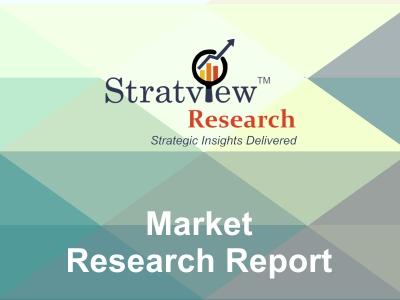Mobile mapping technology has become an indispensable tool, seamlessly integrated into our daily lives. From navigating unfamiliar streets to discovering hidden gems, these constantly evolving maps provide a wealth of information. However, the power of mobile mapping raises crucial ethical questions that demand consideration. This article explores the ethical considerations surrounding mobile mapping, focusing on the delicate balance between transparency and public benefit.
Market Overview
According to Stratview Research, the global mobile mapping market size was valued at USD 32.54 billion in 2022 and it is projected to reach USD 93.58 billion by 2028, growing at a CAGR of 18.99% during 2023-2028.
Data Collection: Who Owns Our Movements?
One of the core concerns surrounding mobile mapping is data collection. As users navigate with GPS-enabled devices or contribute data through citizen mapping initiatives, vast amounts of personal and locational information are collected. Here's a breakdown of the key ethical considerations:
- Informed Consent: Does the average user truly understand the extent of data being collected by mobile mapping applications? Are clear and easily accessible consent mechanisms in place, allowing users to make informed choices about data sharing?
- Data Security and Privacy: How is the collected data being stored and secured? Are there robust security measures in place to prevent unauthorized access or data breaches? Do users have control over their data and the ability to request its deletion?
- Data Aggregation and Anonymization: How is the collected data being aggregated and anonymized? While anonymization is crucial for protecting individual privacy, can it be guaranteed that individual movements cannot be re-identified by sophisticated analysis?
Balancing Public Benefit with Privacy Concerns
Mobile mapping data offers a range of benefits to society, impacting sectors like:
- Urban Planning and Infrastructure Management: Traffic patterns, public space usage, and infrastructure issues can be identified through citizen mapping, allowing for informed urban planning and improved infrastructure management.
- Disaster Management and Response: Real-time data on flooding, blocked roads, or damaged infrastructure during disasters can be crucial for guiding emergency response efforts and saving lives.
- Environmental Monitoring and Sustainability: Citizen mapping can track deforestation, pollution levels, or wildlife migration patterns, empowering environmental scientists and policymakers to address environmental challenges.
However, these advantages must be balanced with the potential privacy risks. Here's how to strike a balance:
- Transparency in Data Usage: Mapping applications and platforms should be transparent about how collected data is used. Users should have clear information on who can access their data, for what purposes, and how long it will be stored.
- Granular User Control: Users should have granular control over the data they share. Options to enable or disable location tracking, choose specific data points to contribute, and set data retention preferences empower users to manage their privacy.
- Data Minimization Principles: Mobile mapping applications should adhere to data minimization principles, collecting only the data necessary for their core functionality. Avoiding unnecessary data collection minimizes potential privacy risks.
Beyond Individual Privacy: Societal Considerations
The ethical considerations extend beyond individual user privacy and encompass broader societal impacts:
- Algorithmic Bias: Mobile mapping algorithms can perpetuate existing biases, potentially influencing routing suggestions or highlighting certain points of interest over others. Careful algorithm design and diverse data sets are crucial to mitigate bias and ensure equitable representation.
- Surveillance and Social Control: The vast amount of data collected through mobile mapping raises concerns about potential misuse by governments or corporations. Robust regulations around data usage and clear limitations on surveillance practices are essential.
- Mapping the Vulnerable: How does mobile mapping impact vulnerable populations? Could data on homeless shelters or protest locations inadvertently put these communities at risk? Ethical considerations must address the potential impact on marginalized groups.
The Road Ahead: Building Trust in Mobile Mapping
Building trust in mobile mapping requires a multi-pronged approach:
- Open Dialogue and Public Education: Open discussions about data collection practices, potential risks and benefits, and user control mechanisms are crucial for fostering public trust.
- Strong Regulatory Frameworks: Robust data protection regulations with clear enforcement mechanisms are essential to ensure responsible data collection, storage, and usage.
- Collaboration Between Stakeholders: Collaboration between mobile mapping developers, data analysts, policymakers, and user advocacy groups is necessary to develop ethical frameworks and address emerging challenges.
Conclusion: A Future Built on Transparency
Mobile mapping technology offers immense potential to improve our lives and address societal challenges. However, navigating the ethical considerations surrounding data collection and usage is vital. By prioritizing transparency, user control, and responsible data governance, we can ensure a future where mobile mapping serves the public good without compromising individual privacy or societal well-being. Together, we can build a future where the power of mobile mapping is harnessed responsibly and ethically.

